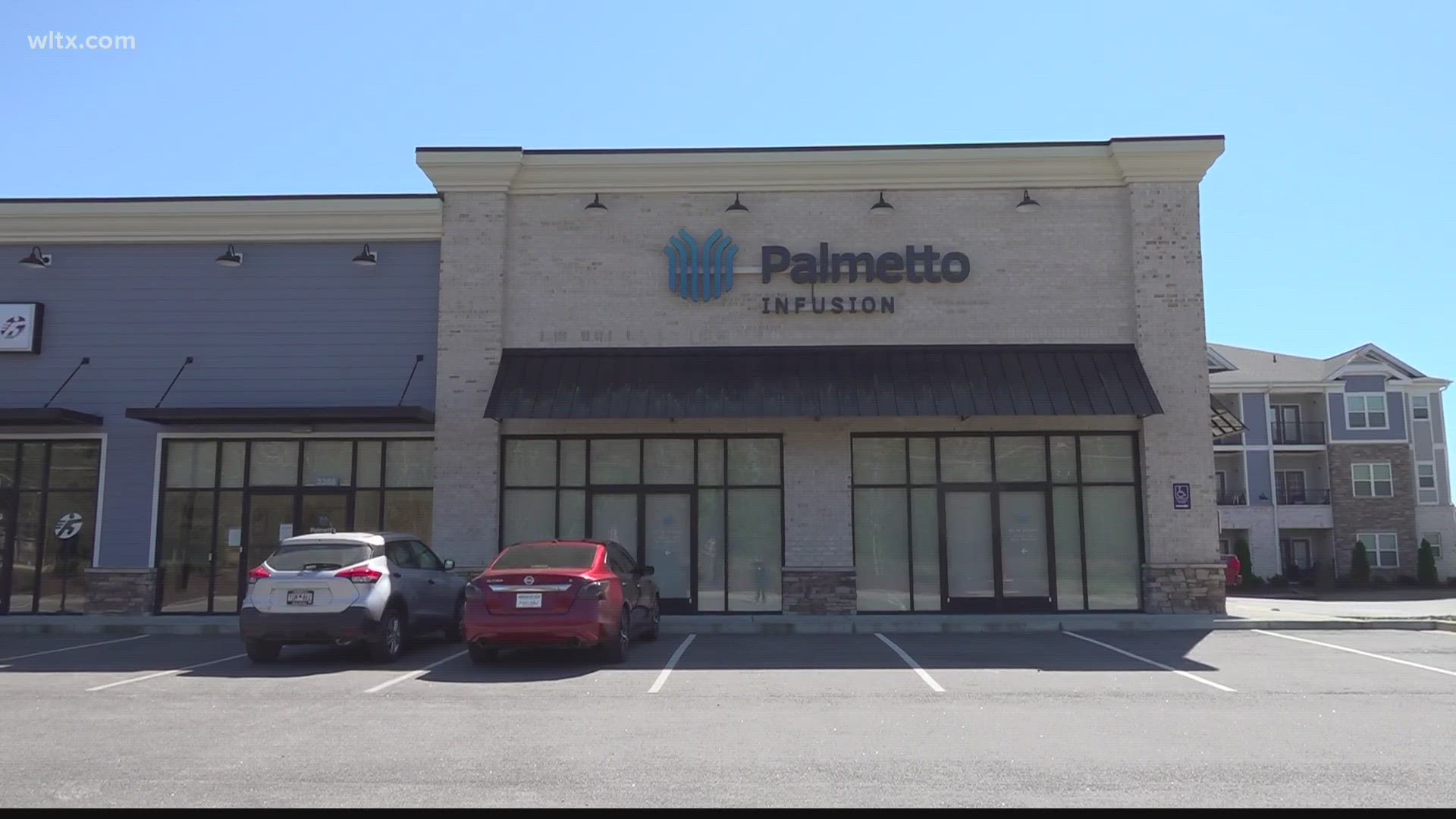SUMTER, S.C. — Accessibility to treatment is something everyone wants. Especially when it comes to people battling chronic illnesses like Crohn's disease or rheumatoid arthritis, receiving medicine on time is crucial.
A new treatment center in Sumter is helping the community.
"I was diagnosed at 19 with Crohn's disease," Sumter resident Dean Andrews explains.
Andrews has been receiving medication transfusions to treat her chronic illness since 1999, driving all the way to Orangeburg or West Columbia — and back home after.
"It was taking me an hour and 15 minutes easily to get from here to the center in West Columbia so stop and think. I would go there, and then with the afternoon traffic it was usually an hour and a half to an hour and 45 minutes for me to get back home," Andrews remembers. "So figure it out, that's two and a half, three hours of my day that I was on the road. And there are times that you don’t feel up to par if you will after you’ve had an infusion. You’re just tired. And then to have to drive an hour and a half home, that’s a little tough."
But now, a treatment facility has opened just five minutes from her hours. Robert King with Palmetto Infusion says this provides an alternative for patients who don’t want treatment through a hospital.
"In a hospital setting, they're gonna be billing a facility fee and just the way they charge for things is different than an outpatient setting. We’re the lower cost model for sure," King shares.
It’s also the more affordable — and accessible — option for many Sumter residents who don’t have reliable transportation. Caitlin Donovan works for the Patient Advocate Foundation, which tries to fight for accessible health care nationally.
"In 2022 alone, transportation issues were 30% of our access issues. It’s an enormous problem," Donovan details. "People don't think about transportation whether it’s gas, getting on the train, getting on a bus system as a healthcare issue but they absolutely are."
If patients battling chronic illnesses can’t easily access treatment, Donovan explains sometimes they just aren’t able to receive the infusions at all.
"What we’re looking at then is more need for emergency services, greater expenses, greater expenses for the healthcare system as a whole and for the individual," Donovan tells me. "It’s just this catastrophe that keeps getting bigger."
Andrews explains how this can happen.
"There’s days that with a chronic illness, you don’t want to get out of bed much less have to get dress and then drive somewhere to be seen and possibly get an infusion. There’s days that you just don’t have it to go on," Donovan says.
But as accessibility to treatment improves, more patients like Andrews can get the medicine they need to live a healthy life. King says the facility is able to provide a little under 60 different therapies for patients with all different types of chronic illnesses.

